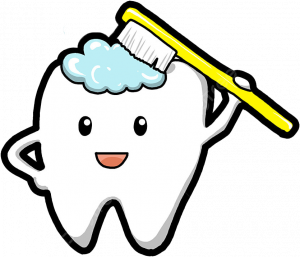 Bloomsburg, Danville, and Lewisburg, PA
Bloomsburg, Danville, and Lewisburg, PA
Many people are becoming health conscious, especially since the dawning of the COVID pandemic. People are spending more time focusing on their health and overall wellness. But are you as health-conscious about your teeth and gums? If you aren’t, you’re more likely to develop gum disease, a chronic infection of the gums that leads to tooth loss if not properly managed. According to the Centers for Disease Control and Prevention (CDC), almost half of adults in the U.S. over the age of 30 have gum disease. That means many adults have gum disease and don’t know it! Today on the blog, our Bloomsburg general dentists share the harmful effects of untreated gum disease and how to tell if you have it.
How does gum disease develop?
Gum disease develops due to poor oral hygiene. Neglecting your oral health or not brushing and flossing as recommended could lead to a buildup of harmful oral bacteria that infect the gums. Left untreated, gum disease slowly causes damage to your teeth and gums. It starts by causing gum recession, and then bacteria hide underneath the gums forming periodontal pockets. Foul-smelling breath is more likely, as well as loose teeth. Eventually, the infection spreads to the supporting jawbone, leading to tooth loss if not treated.
What the health effects of gum disease?
The effects of gum disease not only affect your mouth but your overall health as well. Studies reveal a strong connection between the mouth and body. When harmful oral bacteria buildup underneath the gums, it has direct access to the body’s bloodstream, which carries the bacteria throughout the body and into other organs like the heart and brain. Research shows that untreated gum disease increases one’s risk of cardiovascular disease, stroke, and even dementia. If a doctor told you that you had an infection in your body, the chances are you would address the problem immediately. But many people ignore the alarming consequences of oral infections or gum disease.
How can I tell if I have gum disease?
Gum disease begins as gingivitis, which presents symptoms such as inflamed, red gums that easily bleed when brushing or flossing. This stage of gum disease is reversible by maintaining an excellent oral hygiene routine at home, which includes brushing your teeth twice a day for two minutes each time and flossing daily. But if gum disease progresses, it develops into periodontitis, where permanent damage has been done. Periodontitis is manageable with at-home oral hygiene and professional dental treatments.
How can I prevent gum disease?
You can prevent gingivitis and periodontitis by ensuring you brush twice a day and floss daily. While many adults brush their teeth every day, most do not floss, which is the only way to clean between your teeth and along the gum line. You should also commit to twice-yearly dental cleanings to remove tartar buildup from your teeth. Skipping dental cleanings could increase your risk of developing gum disease.
General Dentists in Bloomsburg
If you believe that you have gum disease or would like to learn how to manage gum disease in Bloomsburg, contact Hamilton Dental Care to learn more. Call (570) 387-0533 to schedule a consultation and start your journey to better oral health.






Comments are closed